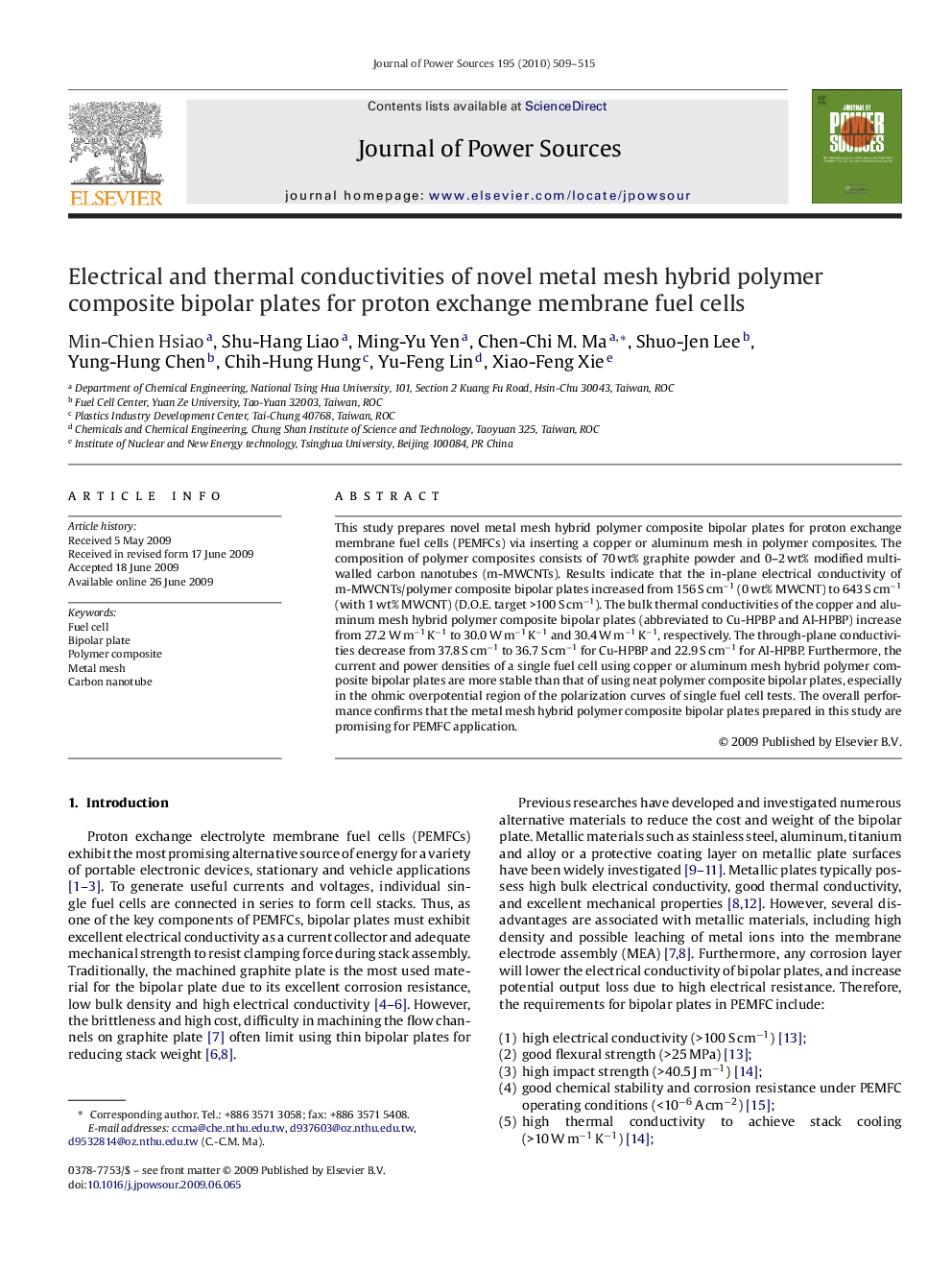| Article ID | Journal | Published Year | Pages | File Type |
|---|---|---|---|---|
| 1293896 | Journal of Power Sources | 2010 | 7 Pages |
Abstract
This study prepares novel metal mesh hybrid polymer composite bipolar plates for proton exchange membrane fuel cells (PEMFCs) via inserting a copper or aluminum mesh in polymer composites. The composition of polymer composites consists of 70Â wt% graphite powder and 0-2Â wt% modified multi-walled carbon nanotubes (m-MWCNTs). Results indicate that the in-plane electrical conductivity of m-MWCNTs/polymer composite bipolar plates increased from 156Â SÂ cmâ1 (0Â wt% MWCNT) to 643Â SÂ cmâ1 (with 1Â wt% MWCNT) (D.O.E. target >100Â SÂ cmâ1). The bulk thermal conductivities of the copper and aluminum mesh hybrid polymer composite bipolar plates (abbreviated to Cu-HPBP and Al-HPBP) increase from 27.2Â WÂ mâ1Â Kâ1 to 30.0Â WÂ mâ1Â Kâ1 and 30.4Â WÂ mâ1Â Kâ1, respectively. The through-plane conductivities decrease from 37.8Â SÂ cmâ1 to 36.7Â SÂ cmâ1 for Cu-HPBP and 22.9Â SÂ cmâ1 for Al-HPBP. Furthermore, the current and power densities of a single fuel cell using copper or aluminum mesh hybrid polymer composite bipolar plates are more stable than that of using neat polymer composite bipolar plates, especially in the ohmic overpotential region of the polarization curves of single fuel cell tests. The overall performance confirms that the metal mesh hybrid polymer composite bipolar plates prepared in this study are promising for PEMFC application.
Related Topics
Physical Sciences and Engineering
Chemistry
Electrochemistry
Authors
Min-Chien Hsiao, Shu-Hang Liao, Ming-Yu Yen, Chen-Chi M. Ma, Shuo-Jen Lee, Yung-Hung Chen, Chih-Hung Hung, Yu-Feng Lin, Xiao-Feng Xie,
